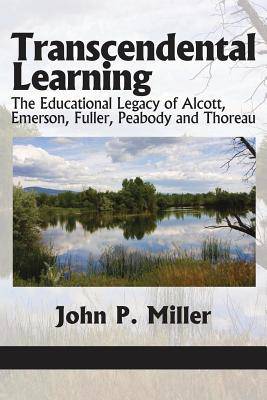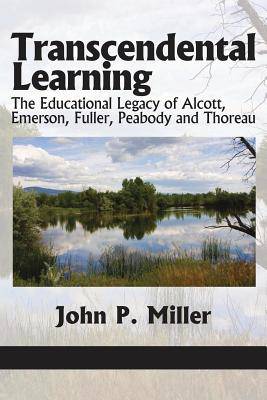
- Retrait gratuit dans votre magasin Club
- 7.000.000 titres dans notre catalogue
- Payer en toute sécurité
- Toujours un magasin près de chez vous
- Retrait gratuit dans votre magasin Club
- 7.000.0000 titres dans notre catalogue
- Payer en toute sécurité
- Toujours un magasin près de chez vous
Transcendental Learning
The Educational Legacy of Alcott, Emerson, Fuller, Peabody and Thoreau
John P Miller
60,95 €
+ 121 points
Format
Description
Transcendental Learning discusses the work of five figures associated with transcendentalism concerning their views on education. Alcott, Emerson, Fuller, Peabody and Thoreau all taught at one time and held definite views about education. The book explores these conceptions with chapters on each of the five individuals and then focuses the main features of transcendental learning and its legacy today. A central thesis of the book is that transcendental learning is essentially holistic in nature and provides rich educational vision that is in many ways a tonic to today's factory like approach to schooling. In contrast to the narrow vision of education that is promoted by governments and the media, the Transcendentalists offer a redemptive vision of education that includes: -educating the whole child-body, mind, and soul, -happiness as a goal of education. -educating students so they see the interconnectedness of nature, -recognizing the inner wisdom of the child as something to be honored and nurtured, - a blueprint for environmental education through the work of Thoreau, - an inspiring vision for educating women of all ages through the work of Margaret Fuller, - an experimental approach to pedagogy that continually seeks for more effective ways of educating children, - a recognition of the importance of the presence of teacher and encouraging teachers to be aware and conscious of their own behavior. -a vision of multicultural and bilingual education through the work of Elizabeth Peabody The Transcendentalists, particularly Emerson and Thoreau, sewed the seeds for the environmental movement and for non-violent change. Their work eventually influenced Gandhi and Martin Luther King Jr. and it continues to resonate today in the thinking of Aung Sang Suu Kyi and the Dalai Lama. The Transcendentalists' vision of education is worth examining as well given the dissatisfaction with the current educational scene.
Spécifications
Parties prenantes
- Auteur(s) :
- Editeur:
Contenu
- Nombre de pages :
- 152
- Langue:
- Anglais
- Collection :
Caractéristiques
- EAN:
- 9781617355844
- Date de parution :
- 14-10-11
- Format:
- Livre broché
- Format numérique:
- Trade paperback (VS)
- Dimensions :
- 156 mm x 234 mm
- Poids :
- 222 g

Les avis
Nous publions uniquement les avis qui respectent les conditions requises. Consultez nos conditions pour les avis.






